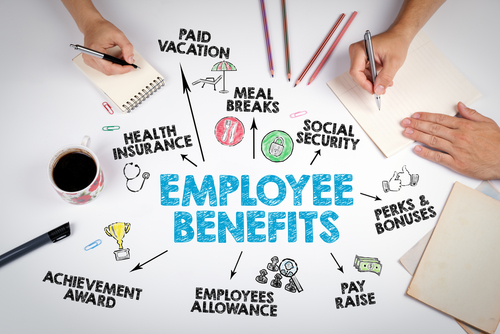In the Information Age, companies’ most valuable asset is their human capital. Organizations compete aggressively to hire the best and brightest employees because those employees help their company outperform competitors through their ability to innovate and strategize. Therefore, it’s not surprising that companies try to get as much value as they can from these employees, often expecting staff to put in long hours and work nights and weekends—something that is especially true for salaried workers.
Nonmonetary Incentives to Drive Engagement and Productivity
In line with the mantra “work hard; play hard” and to provide attractive, nonmonetary incentives to recruit and retain top talent, many companies began going all out on office “perks.”
This doesn’t simply mean free coffee and snacks in the breakroom. It can also mean things like company-run fitness centers, childcare facilities, and luxury office lounges. Google is perhaps the poster child for office perks, offering its employees not only free food and coffee but also juice bars, free fitness classes, and nap pods.
The Pandemic Impact on Perks
With the widespread shift to remote work triggered by the COVID-19 pandemic, some observers are questioning whether Google-like plush office perks may be a thing of the past. Many workers would prefer working from home over an office with free coffee. As the much-discussed Great Resignation has shown, many adults are eschewing work altogether.
Still, while some see the post-COVID world as one in which office perks simply lack the allure they once held, others still see value in creating an in-person office environment that’s attractive to workers.
“One technique for those companies who want to lure their people back is to promise them a more enticing workplace,” writes Anna Jones in an article for BBC Worklife. She points to Linda Morey-Burrows, principal director of London-based interior design firm Morey-Smith, as a case in point. Morey-Burrows acknowledges that companies can’t “just rely on the sort of in-office attractions they offered before.” In fact, she adds, “People working at home have managed just fine—and remained productive—without free coffee and massages. Many are also less stressed. But the downside of homeworking, for some, has been the isolation, or juggling work around family duties or housemates.”
While the changes ushered in by the pandemic may have altered employees’ and employers’ opinions on office perks, some still believe there’s value in creating a workplace employees enjoying spending time in.
In what’s likely to be a hybrid work model for many organizations moving forward, companies shouldn’t completely disregard the value of office perks just yet.

